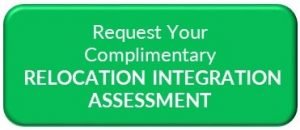If your company’s 2020-21 employee relocation plans require a mix of new hires and current employee transferees, how can you be sure you will attract the most highly qualified candidates? Many job seekers are looking for career opportunities. However, they also have other interests such as home ownership and a desire to live in a growing and vibrant location.
With the COVID-19 pandemic leading many employers to institute Work from Anywhere policies, some may think relocation is no longer necessary to attract talent. Employers that pursue this line of thinking may believe they are offering a great value in their talent acquisition programs. Unfortunately, they may also be seen as a less desirable employer for job seekers to consider. Why? Because the employer’s location may be one of the most desirable points for job seekers who are seeking opportunities.
Location, Location, Location
When employers benchmark their relocation policy, they should keep “location, location, location” at the top of their mind for talent acquisition. Key point to remember: the employer’s location is where the job seeker wants to work and live. While the job opportunity carries significant weight, location is often a deciding factor for employee relocation.
Location Often at Top of the List for 2020-21 Employee Relocation
Location is often at the top of every job seeker’s list when looking for employment. Many people see moving for a new job an exciting adventure. Looking at the best cities to find a new job is almost a rite of passage for new college graduates. Even during the pandemic, many cities have more job openings than candidates with the requisite skills and qualifications. Location, then, is a critical consideration for job seekers, and one that employers should leverage in their 2020-21 employee relocation plans.
Beyond location, job openings, and future company growth, job seekers also consider a wide range of location-specific factors in their search. These factors may include:
- Cost of living
- Housing options
- Demographics
- Social networks
- Weather
- Safety
- Educational opportunities
- Professional networks
- Local amenities
Pre-Decision Services are Critical for Success with 2020-21 Employee Relocation
The value of pre-decision services to talent acquisition programs has increased dramatically. Employers can more readily determine if new hires and transferees will result in a successful relocation. These services also help the potential employee learn about the area and understand all aspects of the relocation. Career support services for spouses and partners are also provided, and family matters are taken into full consideration.
There are many benefits of pre-decision services for both the client and the candidate, including:
Client Benefits
- Increases job acceptance ratios
- Highlights candidate concerns and issues prior to relocation
- Minimizes policy exceptions
- Provides cost savings
- Increases budget accuracy
- Increases successful relocations
- Identifies candidates unable/unwilling to relocate
Candidate Benefits
- Thorough orientation tours for candidate and family members
- Expert counsel and assistance for all aspects of the relocation
- Relocation industry professionals provide support and attention
- Spouse, partner, and family support services
- Dedicated consultant available to discuss any concerns
MyRelocation® Video Destination Spotlights Highlight the Employer’s Location
With so much interest in location and location-specific factors from job seekers, employer should consider how they present relocation opportunities to candidates. GMS offers its clients Destination Spotlights to North America and Global locations that provide a wealth of helpful information. GMS’ MyRelocation® Video Destination Spotlights are professionally crafted videos. These beautiful and engaging videos provide an overview of the location for the candidate.
What Should Employers Do About 2020-21 Employee Relocation?
Employers should examine their 2020-21 employee relocation plans to determine how they can be successful in attracting candidates with the necessary skills and qualifications. They should work with a Relocation Management Company (RMC) with knowledge and experience in developing relocation policies that follow industry best practices.
Conclusion
GMS’ team of global relocation experts has helped thousands of our clients understand how to develop relocation programs that attract candidates with the necessary skills, education, and experience. Our team can help your company understand how to use 2020-21 employee relocation plans to design an effective relocation policy. As a result, your company will be able to remain competitive in its industry and attract the best candidates for job openings.
GMS was the first relocation company to register as a “.com.” The company also created the first online interactive tools and calculators, and revolutionized the entire relocation industry. GMS continues to set the industry pace as the pioneer in innovation and technology solutions with its proprietary MyRelocation® technology platform.
New SafeRelo™ COVID-19 Knowledge Portal
GMS recently launched its new SafeRelo™ COVID-19 Knowledge Portal featuring a number of helpful resources including:
- Curated selection of news and articles specific to managing relocation programs and issues relating to COVID-19
- Comprehensive guide to national, international, and local online sources for current data
- Program/Policy Evaluation (PPE) Tool for instant relocation policy reviews
Contact our experts online to schedule a complimentary policy review for your 2020-21 employee relocation plans, or give us a call at 800.617.1904 or 480.922.0700 today.
We're Here to Help! Request a Courtesy Consultation
Are you ready to talk to a Mobility Pro? Learn how GMS can optimize your mobility program, enhance your policies to meet today’s unique challenges, receive an in-depth industry benchmark, or simply ask us a question. Your Mobility Pro will be in touch within 1 business day for a no-pressure, courtesy consultation.










